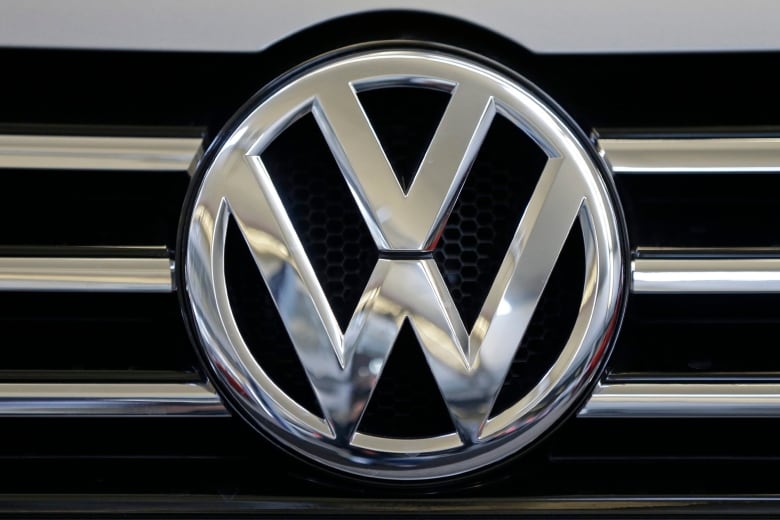Volkswagen used 'cannons' in Mexico to prevent hailstorms — but farmers say it caused a drought
The car company says it will turn off its weather-altering technology after locals sued

The company that made headlines for cheating pollution emissions test is now being accused of cheating Mexican farmers out of their rainy season.
The company announced Wednesday it would stop using "hail cannons" to prevent the formation of ice stones that had been damaging Volkswagen cars parked outside its facility in Puebla.
The move comes after a group of local farmers launched a lawsuit against the company, seeking 70-million pesos ($4.8-million Cdn) in damages, alleging the cannons caused a months-long drought that affected 5,000 acres of crops.
The car company has vowed to shut the machines off and install protective netting over its cars instead.
Peter Campbell, who reported the news for the Financial Times, spoke to As It Happens guest host Helen Mann about the story, which he calls "full-on bonkers."
Here is part of their conversation.
Why was Volkswagen in Mexico trying to change the weather?
There's still thousands of cars near the plant once they're finished that are ready to be loaded onto trucks or trains to be sold and shipped around the country. And a hail storm can damage these cars ... sometimes costing millions of pounds of damage from chipped paint work that has to be replaced.
VW took this rather unusual approach to trying to deal with hail.
Rather than install netting or anything else above the cars, they installed something called hail cannons, which aimed to disrupt the hail and actually prevent it from ever forming in the sky in the first place.
I'm quitting journalism, because I'm never going to write a better story than this. It's full-on bonkers: <a href="https://t.co/WI87ABQamj">https://t.co/WI87ABQamj</a> <a href="https://t.co/s9ggdfqrnu">pic.twitter.com/s9ggdfqrnu</a>
—@Petercampbell1How did they work?
They shoot shockwaves up into the air, and those shockwaves push apart the water particles and prevent them from forming hail actually up in the cloud itself.
This is used by some other carmakers as well. But the problem is they had them set to automatic. So whenever the system detected rain was imminent, it would turn the cannons on.
And the effect of this — according, certainly, to a group of local farmers — was not only did VW stop any hail falling, but they stopped any rainfall happening in the area as well, which particularly affected the farmers during what was supposed to be Mexico's rainy season.
So the cannons were essentially too effective and then had this offshoot effect?
The cannons were too effective, and this group of local farmers near to the VW plant were actually claiming that they had no rain from about May or June onwards, which caused their crops to fail.
How big an area are we talking about?
The farmers claim to have lost several thousand acres worth of crops.
It's worth saying that the lawsuit was quite recent and has not been tested yet, and so it is very difficult to tell what impact VW cannons had on the on the crops themselves, or whether there were other forces at work.
We obviously know there's been a huge period of prolonged heat across many parts of the world. We've had it in Britain. You've had it in North America. And so it's very difficult to tell what exactly was causing this.
How important is this plant to VW? How big is it?
It's a huge plant. It's actually VW's largest plant outside of Germany.
So VW is quite rightly wanting to protect the cars outside the plant from any hail damage and reduce its costs with that. But it also needs to keep the local community happy.
If you have all the farmers who live around your plant being very unhappy with this, it's not very good for local community relations.

So how is VW handling the community, then? Is it doing something to try to assuage these concerns?
What VW said is it'll turn off the cannons and install netting. Many of the farmers say this doesn't go far enough. The cannons could still be used in an emergency, VW has said.
And so talks are ongoing. We don't know if VW is going to pay the $3.5 million [$4.8 million Cdn] to farmers, but it's likely that they will want to be keeping good relations going there.
VW also, don't forget, is a huge employer in the area that employs 15,000 people at the plant, and there'll be many thousands more in the local supply chain around there. So a lot of people in the local area have a huge huge stake in VW plant remaining there and remaining profitable.
Well, it just seems that nets would be an easier, more practical solution. You hear about somebody trying to manipulate the weather, and it kind of falls into the, "What could go wrong?" department.
It does seem to be a pretty radical response to what could be essentially solved by having just a giant umbrella over where the cars are sitting.
Written by Sheena Goodyear. Produced by Donya Ziaee. Q&A has been edited for length and clarity.